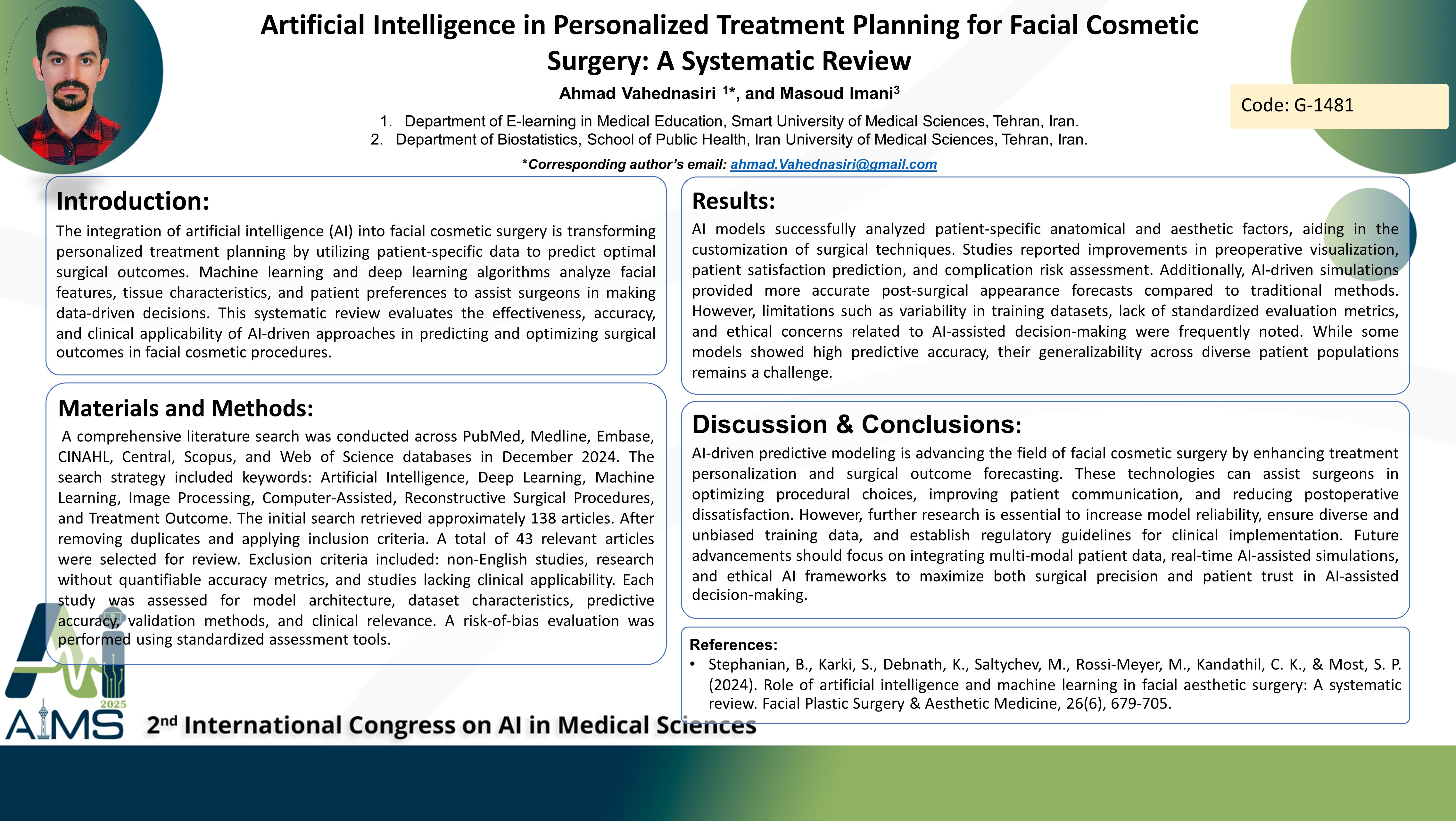Artificial Intelligence in Personalized Treatment Planning for Facial Cosmetic Surgery: A Systematic Review
Code: G-1481
Authors: Ahmad Vahednasiri * ℗, Masoud Imani
Schedule: Not Scheduled!
Tag: Cancer Diagnosis & Treatment
Download: Download Poster
Abstract:
Abstract
Background and aims: The integration of artificial intelligence (AI) into facial cosmetic surgery is transforming personalized treatment planning by utilizing patient-specific data to predict optimal surgical outcomes. Machine learning and deep learning algorithms analyze facial features, tissue characteristics, and patient preferences to assist surgeons in making data-driven decisions. This systematic review evaluates the effectiveness, accuracy, and clinical applicability of AI-driven approaches in predicting and optimizing surgical outcomes in facial cosmetic procedures. Method: A comprehensive literature search was conducted across PubMed, Medline, Embase, CINAHL, Central, Scopus, and Web of Science databases in December 2024. The search strategy included keywords: Artificial Intelligence, Deep Learning, Machine Learning, Image Processing, Computer-Assisted, Reconstructive Surgical Procedures, and Treatment Outcome. The initial search retrieved approximately 138 articles. After removing duplicates and applying inclusion criteria. A total of 43 relevant articles were selected for review. Exclusion criteria included: non-English studies, research without quantifiable accuracy metrics, and studies lacking clinical applicability. Each study was assessed for model architecture, dataset characteristics, predictive accuracy, validation methods, and clinical relevance. A risk-of-bias evaluation was performed using standardized assessment tools. Results: AI models successfully analyzed patient-specific anatomical and aesthetic factors, aiding in the customization of surgical techniques. Studies reported improvements in preoperative visualization, patient satisfaction prediction, and complication risk assessment. Additionally, AI-driven simulations provided more accurate post-surgical appearance forecasts compared to traditional methods. However, limitations such as variability in training datasets, lack of standardized evaluation metrics, and ethical concerns related to AI-assisted decision-making were frequently noted. While some models showed high predictive accuracy, their generalizability across diverse patient populations remains a challenge. Conclusion: AI-driven predictive modeling is advancing the field of facial cosmetic surgery by enhancing treatment personalization and surgical outcome forecasting. These technologies can assist surgeons in optimizing procedural choices, improving patient communication, and reducing postoperative dissatisfaction. However, further research is essential to increase model reliability, ensure diverse and unbiased training data, and establish regulatory guidelines for clinical implementation. Future advancements should focus on integrating multi-modal patient data, real-time AI-assisted simulations, and ethical AI frameworks to maximize both surgical precision and patient trust in AI-assisted decision-making.
Keywords
Treatment Outcome, Reconstructive Surgical Procedures, AI
